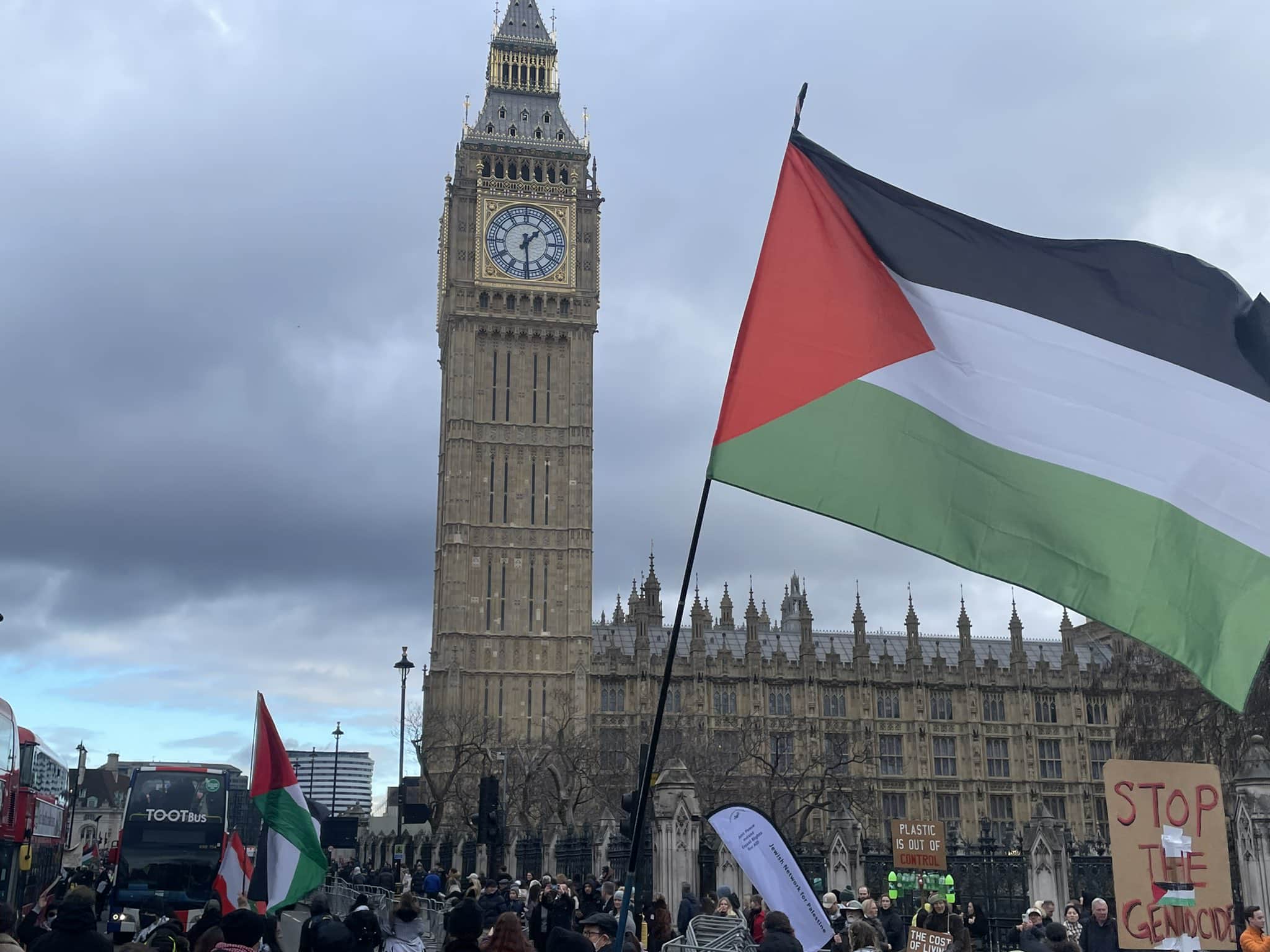Pro-Palestinian protesters blocked roads outside the British Parliament on Saturday, demanding an immediate ceasefire in the war between Israel and the Hamas terror group.
Videos posted on social media showed police blocking protesters’ access to Westminster Bridge, and there were reports of several small clashes.
Not having full access to the bridge, where the protesters planned to unfurl their posters, they occupied the surrounding roads.
Police said they had cordoned off the protest site, and that by 5:00 p.m. Kyiv time, people had begun to disperse. Those who refused to obey the order to leave were threatened with arrest.
Saturday’s action was smaller than previous mass marches, but came two days before the British parliament returns to work after the Christmas break. The protest was intended to force politicians to take a tougher stance on Israel.
Britain has so far not called for an immediate ceasefire, and Foreign Secretary David Cameron has argued that any such deal could prove unsustainable and lead to an escalation of violence without a plan for a long-term peace settlement.
Most previous protests in London have been coordinated with police and have been largely peaceful, but police said organizers of Saturday’s protests declined to share details of their plans.
Earlier it was reported that a group of employees of the campaign headquarters of US President Joe Biden wrote a letter to the head of the White House with the demand to achieve a long-term ceasefire in Gaza.
This is not the first such letter to Biden. In December, more than 130 employees of the US Department of Homeland Security asked the presidential administration to call for an immediate ceasefire in Gaza.
Earlier, the media reported that the administration of US President Joe Biden insisted on the withdrawal of part of the Israeli forces from the Gaza Strip.
The CNN TV channel, citing a high-ranking American official, previously reported that the gradual reduction in the number of Israeli troops in Gaza indicates a gradual transition to a phase of war with less intensity.

